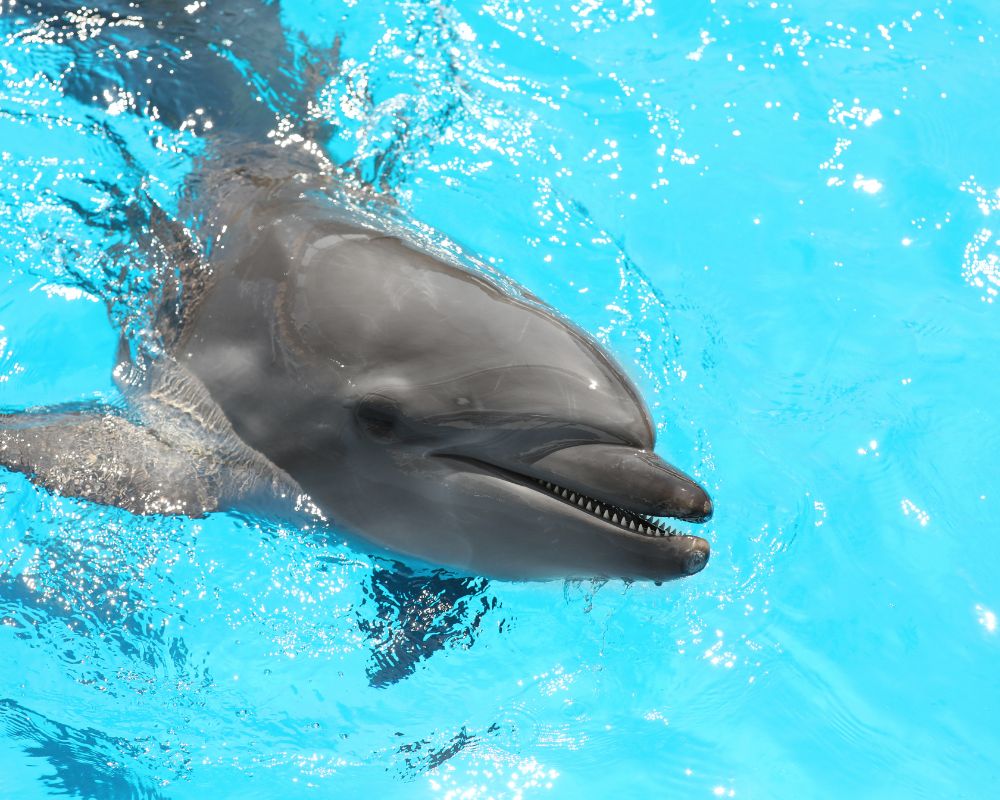Hello, animal lovers! Are you curious about the eating habits of dolphins? Have you ever wondered if these adorable creatures have a taste for bass?
Well, you’re in luck because today we’re exploring this topic. Dolphins are fascinating animals with unique characteristics, and their feeding habits are no exception.
In this blog post, we’ll take a closer look at whether dolphins eat bass and what we know about their diet. So, let’s get started and satisfy your curiosity!
Do Dolphins EaT A Bass?

The answer is yes, they do! While dolphins mainly consume fish that swim in schools, they have been observed eating bass as well. Let’s take a closer look at the evidence and factors that may influence their decision to eat bass.
Dolphins are opportunistic feeders and have a varied diet. They consume a wide range of prey, including fish, squid, and crustaceans.
Their hunting behavior is highly coordinated and usually involves working together in a group to herd their prey.
But, is there any evidence that Dolphins eat bass?
While bass may not be their favorite food, dolphins have been seen consuming this type of fish in the wild. In fact, a study conducted found that bottlenose dolphins were eating mostly Atlantic croaker and spotted seatrout, but also occasionally consuming largemouth bass.
This suggests that dolphins are capable of adapting their diet to the local environment and the availability of prey.
Factors That May Influence Dolphin’s Decision To Eat Bass
Several factors may influence whether dolphins decide to eat bass. For example:
- Size and Availability of Fish: One factor that may impact a dolphin’s decision to eat bass is the size and availability of the fish in a given area.
Larger fish like tuna and mackerel may be preferable to dolphins, but if these fish are not available in the area, dolphins may turn to smaller prey like bass.
- An abundance of Other Prey: The abundance of other prey can also play a role in a dolphin’s decision to eat bass.
If there are fewer fish species available in an area, dolphins may be more likely to eat bass as a source of food.
- Water Temperature and Salinity: Environmental factors like water temperature and salinity can also impact the distribution and behavior of fish, which in turn can affect the likelihood of dolphins encountering and eating bass.
For example, some fish species may migrate to different areas during certain times of the year, making them more or less available to dolphins.
- Hunting Strategies: Dolphins are known for their highly coordinated hunting behavior. When hunting in groups, they may use different strategies to catch their prey, depending on the species of fish.[1]
Some of these strategies may be more effective for catching bass than other types of fish, which could make them more likely to eat bass in certain situations.
Other Animals That Prey On Bass
While dolphins may eat bass, they are not the only predators to do so. Other marine animals that are known to prey on bass include sharks, seals, and sea birds. However, the frequency of bass consumption varies among different predator species and populations.
Why Do Dolphins Eat Bass?
While dolphins are known to eat a wide variety of prey, including squid, octopus, and a variety of fish species, they may also eat bass for several reasons. Some possible reasons include:
- Nutritional Value: Bass is a source of protein and essential nutrients that dolphins need to survive. While larger fish may provide more nutritional value, bass can still be a valuable addition to a dolphin’s diet.
- Availability: Depending on the location and time of year, bass may be more readily available to dolphins than other types of prey. In these situations, dolphins may choose to eat bass simply because it’s a convenient food source.
- Hunting Success: As mentioned earlier, dolphins are highly coordinated hunters. If they’ve developed successful strategies for catching bass in a particular area, they may continue to hunt for this species as it’s a reliable source of food.
Benefits And Risks Of Eating Bass:
While there may be benefits to eating bass, there are also risks. Some of the potential benefits include:
- Nutritional Value: As mentioned earlier, the bass is a good source of protein and essential nutrients that dolphins need to survive.
- Convenience: If bass is readily available in an area, it may be a convenient food source for dolphins.
However, there are also risks associated with eating bass. For example:
- Contaminants: Bass, like many other fish species, may contain contaminants like mercury and PCBs that can be harmful to dolphins if consumed in large quantities.
- Competition: Other predators, including humans, may also hunt bass in the same areas where dolphins live. This can create competition for food resources and may impact the overall health of the dolphin population.
Comparison Of Bass To Other Prey Species:
While bass may be a part of a dolphin’s diet, it’s important to note that their diet is diverse and includes a wide variety of prey. Depending on the location and time of year, dolphins may prefer to eat other types of fish or invertebrates.
For example, dolphins in certain areas may primarily eat squid, while those in other areas may feed on small fish like sardines or anchovies.
Do Dolphins Eat Bait Fish?
Yes, dolphins are known to eat bait fish. Baitfish, also known as forage fish, are small fish species that are commonly used as bait by anglers. These fish are an important part of the marine food chain and are a common food source for many larger predator species, including dolphins.
Some examples of bait fish that dolphins may eat include sardines, anchovies, and herring. Dolphins are opportunistic predators and will eat whatever prey is available and abundant in their habitat.
In some cases, bait fish may be a primary food source for dolphins, while in other cases they may only make up a small part of their diet.
Conclusion
In this blog post, we explored the question of whether or not dolphins eat bass. We learned that while bass is not a primary food source for dolphins, they have been known to eat them on occasion.
We also discussed the various factors that may influence a dolphin’s decision to eat bass, including habitat, prey availability, and social behavior.
Additionally, we looked at some of the possible reasons why dolphins might choose to eat bass, as well as the benefits and risks associated with doing so.
Overall, the relationship between dolphins and bass is an interesting and complex one. While dolphins are primarily known for their affinity for fish species like mackerel and herring, they are opportunistic predators that will eat whatever prey is available to them.

